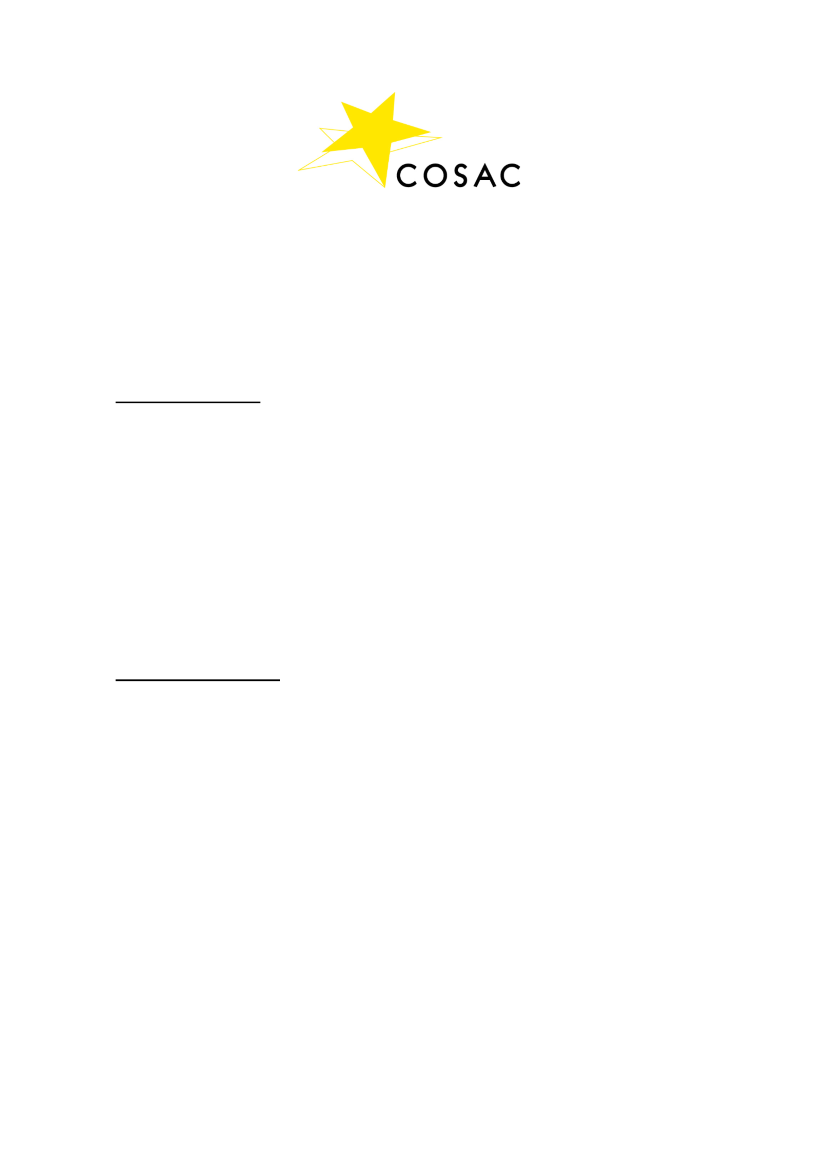
MINUTES OF THE LXXII COSAC
W
ARSAW
, P
OLAND
, 8-10 J
UNE
2025
Note:
The text of keynote interventions which have been shared with the Presidency will be
published on IPEX. A video recording of the full meeting is available via the webpage of the
Parliamentary Dimension of the Polish Presidency.
OPENING SESSION
The Session was chaired by Ms Agnieszka POMASKA, Chair of the European Union Affairs
Committee of the Sejm of the Republic of Poland and Mr Tomasz GRODZKI, Chair of the
European Union Affairs Committee of the Senate of the Republic of Poland.
Ms POMASKA opened the conference by welcoming delegations to Warsaw. She extended a
particular welcome to Ms Bernadette GEIEREGGER from the Austrian
Bundesrat,
to Mr
Vincent BLONDEL from the Belgian
Senaat/Sénat,
and to Mr Jan SCHILLER from the Czech
Senát,
who attended COSAC for the first time as chairpersons of their committees. She
informed delegations that full interpretation into all official languages was provided in
accordance with the Rules of Procedure, with the exception of Portuguese as the Presidency
had been formally informed the Portuguese delegation was unable to attend.
WELCOME ADDRESS
Ms POMASKA then gave the floor to Mr Szymon HOŁOWNIA, Marshal of the Polish Sejm,
for a welcome address.
Mr HOŁOWNIA began by noting that this was a good moment to reflect on the achievements
of the Polish Presidency. There have been substantial changes on the international arena during
this period. He argued that now, when we have to discuss which direction the EU should take
in a changing geopolitical landscape, it is important to go back to basics. The founding fathers
of the EU had a simplicity of thought which was excellent, he said, in seeing the EU as a
promise of security, liberty, and a good future. When it comes to security, he underlined that
the EU needs to take greater responsibility and that security, the motto of the Polish presidency,
permeates all policy areas. In this perspective he emphasised that the EU does not compete
with NATO, but rather complements it as a project aimed at providing security for EU citizens.
That is why it should be constantly underlined that defence spending should be treated as an
investment, he argued. The EU is not just a free market, but also a community of values, and
one of the basic values is to guarantee the safety of our families. This is also what EU citizens
call for and expect from their leaders. Mr HOŁOWNIA also called for mechanisms whereby